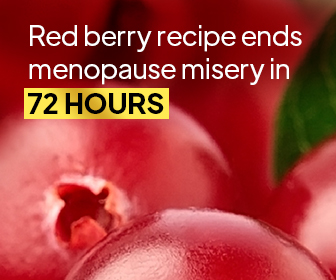Menopause is a natural and inevitable transition that marks the end of a woman’s reproductive years. During this time, hormonal changes can lead to a variety of physical and emotional symptoms, including weight gain, hot flashes, and mood swings. While these symptoms cannot be completely avoided, a healthy diet – in combination with MenoRescue™ – can help manage them.
In this article, we will discuss the foods to eat and foods to avoid during menopause.
Foods to Eat During Menopause:

- Calcium-Rich Foods: Menopausal women are at higher risk of developing osteoporosis, a condition in which bones become weak and brittle. Calcium is an essential mineral for bone health, and it is recommended that women over 50 consume 1200 mg of calcium per day. Good sources of calcium include dairy products, leafy greens, and fortified foods such as cereals and orange juice.
- Omega-3 Fatty Acids: Omega-3 fatty acids are essential fats that play a crucial role in brain function and heart health. Menopausal women may benefit from consuming foods rich in omega-3s, such as fatty fish (salmon, mackerel, and sardines), chia seeds, and flaxseeds.
- Whole Grains: Whole grains are a good source of fiber, which can help manage weight and prevent constipation, a common symptom during menopause. Examples of whole grains include quinoa, brown rice, and whole-wheat bread.
- Fruits and Vegetables: Fruits and vegetables are rich in vitamins, minerals, and antioxidants, which can help protect against chronic diseases and reduce inflammation. Eating a variety of colorful fruits and vegetables can provide a range of health benefits.
Foods to Avoid During Menopause:
- Processed Foods: Processed foods are often high in sodium, added sugars, and unhealthy fats. These foods can contribute to weight gain, high blood pressure, and other health problems. Examples of processed foods include fast food, frozen meals, and packaged snacks.
- Caffeine: Caffeine is a stimulant that can interfere with sleep and exacerbate hot flashes in some women. Limiting caffeine intake may help improve sleep quality and reduce the frequency and severity of hot flashes.
- Spicy Foods: Spicy foods can trigger hot flashes in some women. Reducing the intake of spicy foods may help manage hot flashes and night sweats.
- Alcohol: Alcohol can disrupt sleep and exacerbate mood swings and hot flashes. Limiting alcohol intake may help manage these symptoms.
In conclusion, a healthy diet can help manage the physical and emotional symptoms of menopause. Eating a balanced diet that includes calcium-rich foods, omega-3 fatty acids, whole grains, fruits, and vegetables, while avoiding processed foods, caffeine, spicy foods, and alcohol, can help women feel their best during this transitional period.








